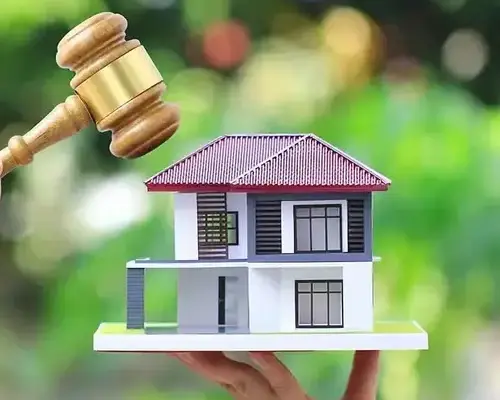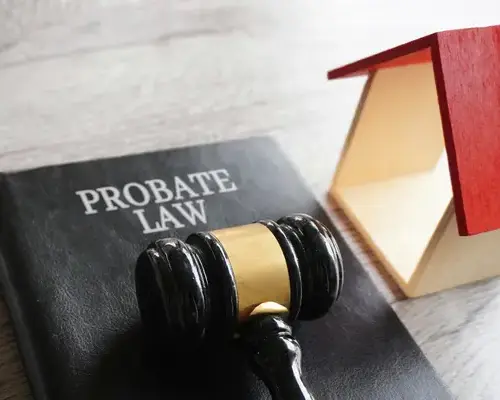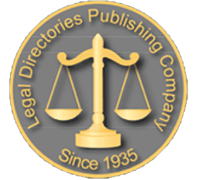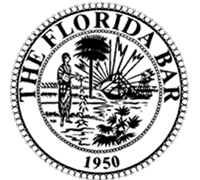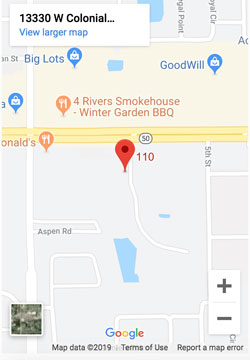How a Foreclosure Defense Lawyer Can Save Your Home
Many people believe that a lawyer’s only role is to fight in a courtroom, but that’s only a small part of the story. The work of a great foreclosure defense lawyer often begins long before a hearing is scheduled. Their first goal is frequently to find a solution that avoids a prolonged legal battle altogether. They are skilled negotiators who can communicate with your lender to explore alternatives like loan modifications, forbearance agreements, or repayment plans. By presenting a strong, well-documented case on your behalf, they can often secure a practical resolution that makes your payments more manageable and allows you to stay in your home without ever stepping foot in court.
Key Takeaways
- Act Quickly to Preserve Your Options: The moment you receive a notice from your lender is the best time to call an attorney. In Florida, you only have 20 days to respond to a foreclosure lawsuit, and acting early gives your lawyer the most time to build a strong defense.
- Your Attorney is Your Advocate and Negotiator: A foreclosure defense lawyer does more than argue in court. They handle all communication with your lender, search for procedural errors, and work to secure practical solutions like loan modifications or other alternatives to foreclosure.
- Prioritize Florida Experience and Clear Communication: Choose a lawyer who specializes in Florida’s specific foreclosure laws. The right professional will explain your options in plain language, keep you updated, and be completely transparent about their fees from the start.
What Does a Foreclosure Defense Lawyer Do?
When you receive a foreclosure notice, it can feel like the world is closing in. A foreclosure defense lawyer is your professional advocate, dedicated to protecting your rights and fighting to keep you in your home. Think of them as your guide and your shield. They step in to handle the complex legal system and communicate with your lender, giving you the breathing room to make clear-headed decisions. Their primary goal is to analyze every detail of your situation and build a strong case on your behalf, ensuring the bank is held accountable for following the law to the letter.
Key Services They Offer
A foreclosure defense lawyer provides several critical services to protect your interests. First, they will conduct a thorough review of your loan documents and the foreclosure complaint, searching for any errors, procedural missteps, or violations of state or federal law. They become your official representative, handling all communication with the lender and their attorneys, which stops the stressful calls and letters. An attorney will also manage all court filings and deadlines, ensuring your case is properly presented and defended. This expert handling of your real estate law case is essential for a strong defense.
Legal Strategies to Protect Your Home
Your lawyer will use specific legal strategies tailored to your situation. A common approach is to challenge the lender’s legal right, or “standing,” to foreclose, which forces them to prove they own the debt. They may also file motions to dismiss the case based on procedural errors, such as improper service of the lawsuit or failure to provide required notices. Beyond the courtroom, our experienced attorneys work to negotiate alternatives to foreclosure. This can include seeking a loan modification to make your payments more affordable, arranging a forbearance plan, or exploring options like a short sale or deed in lieu of foreclosure to avoid a damaging judgment.
How a Lawyer Can Help You Keep Your Home
When you receive a foreclosure notice, it’s easy to feel overwhelmed and powerless. But it’s important to remember that you have rights, and the foreclosure process has strict rules your lender must follow. Hiring a foreclosure defense lawyer is one of the most effective steps you can take to protect your home. They act as your advocate, guide, and defender, working to find every possible solution to your situation.
An experienced attorney does more than just represent you in court. They become your strategic partner, handling communications with the lender, meticulously reviewing every document for errors, and ensuring your rights are protected under Florida law. Banks and mortgage servicers have teams of lawyers working for them; having a dedicated real estate attorney on your side levels the playing field. From negotiating a more manageable payment plan to challenging the legality of the foreclosure itself, your lawyer’s goal is to secure the best possible outcome for you and your family.
Negotiating Better Loan Terms
Communicating with a large lending institution can be intimidating and frustrating. A lawyer can step in and handle these negotiations on your behalf. They know how to speak the lender’s language and can work to find a practical solution that avoids foreclosure. This might involve negotiating a loan modification to lower your monthly payments, securing a forbearance agreement to temporarily pause payments while you get back on your feet, or setting up a new repayment plan to catch up on what you owe. A lawyer’s involvement signals to the lender that you are serious about finding a resolution.
Challenging Improper Foreclosure Actions
Lenders are required to follow a very specific legal process to foreclose on a home in Florida. If they make a mistake at any stage, it can be grounds to challenge the entire action. A foreclosure defense attorney will carefully examine how the lender initiated the case. They’ll check for issues like improper service of the lawsuit, failure to provide required notices, or violations of federal consumer protection laws. Banks have vast resources, so having an experienced attorney who can identify and leverage these procedural errors is critical to defending your home.
Finding Errors in Your Lender’s Paperwork
The mortgage and foreclosure process involves a mountain of complex paperwork. A single error in these documents can sometimes be enough to delay or even stop a foreclosure. Your lawyer will conduct a thorough review of your original loan documents, default notices, and the complaint filed by the lender. They look for inaccuracies in the amount owed, incorrect legal descriptions of the property, or evidence that the lender doesn’t have the legal standing to foreclose. Uncovering these mistakes provides powerful leverage in negotiations and in court.
Exploring Alternatives to Foreclosure
Sometimes, the best path forward doesn’t involve fighting the foreclosure in court. Your attorney can help you explore all available alternatives to find the one that best fits your financial situation and long-term goals. They can help you arrange a short sale, where the lender agrees to let you sell the home for less than the total mortgage balance. Another option is a deed in lieu of foreclosure, where you voluntarily transfer the property title to the lender to satisfy your debt. Your lawyer’s job is to explain the pros and cons of each option, helping you make an informed decision.
How to Choose the Right Foreclosure Defense Lawyer
Finding the right lawyer when you’re facing foreclosure can feel like another overwhelming task on your to-do list, but it’s one of the most important steps you can take to protect your home. This isn’t just about hiring someone to file paperwork; it’s about finding a true partner who will act as your advocate, guide, and strategist through a complex and emotionally draining process. The right attorney understands not only the intricacies of the law but also the stress you’re under, and they can make a significant difference in the outcome of your case.
When you start your search, it’s crucial to look beyond a generic law degree. You need a professional with a specific skill set tailored to foreclosure defense in Florida. This choice will shape your entire experience, from your understanding of the proceedings to your chances of achieving a favorable resolution, like a loan modification or even a dismissal of the case. To make the best decision, focus on four key areas: state-specific legal experience, strong communication skills, a verifiable reputation for success, and a clear, understandable fee structure. Taking the time to vet a lawyer on these points isn’t just due diligence—it’s the foundation for building a strong defense and reclaiming your peace of mind.
Look for Florida-Specific Experience
Foreclosure laws aren’t the same everywhere, and Florida has its own specific rules and procedures. That’s why you need a lawyer who specializes in Florida real estate law, not just a general practitioner. An attorney with deep experience in the state will be familiar with local court systems, judges, and even the specific tactics that lenders use here. When you speak with potential attorneys, ask directly about their experience with Florida foreclosure cases. An experienced local lawyer knows the landscape and can build a defense strategy tailored to the challenges and opportunities within our state’s legal system.
Prioritize Strong Communication Skills
This is a confusing and stressful time, and the last thing you need is a lawyer who speaks in complicated legal jargon. Your attorney should be a clear and consistent communicator who keeps you informed every step of the way. You should feel comfortable asking questions and confident that you’ll get straightforward answers. A skilled lawyer does more than just represent you; they explain your options, from negotiating a loan modification to challenging procedural errors. They should be able to outline a clear plan and help you understand the potential outcomes, giving you a sense of control in a difficult situation.
Check Client Reviews and Reputation
It’s easy to feel like you’re fighting an uphill battle alone, but a lawyer with a strong reputation can make all the difference. Before you commit, do some research. Look for client testimonials and online reviews. Reading about other homeowners’ experiences can give you a real sense of what it’s like to work with a particular attorney or firm. Pay attention to comments about their professionalism, responsiveness, and ability to get results. A proven track record shows that the firm’s attorneys have successfully helped others in your shoes, which can provide much-needed confidence and peace of mind.
Understand Their Fee Structure
Many people hesitate to call a lawyer because they’re worried about the cost, especially when finances are already tight. However, many homeowners find that hiring an attorney is more affordable than they expected. A reputable lawyer will be upfront and transparent about their fee structure. During your initial consultation, don’t be afraid to ask how they charge—whether it’s a flat fee, an hourly rate, or a retainer. Many firms, including ours, offer a free initial consultation to discuss your case and explain the costs involved. This allows you to get professional advice and understand the potential investment before making any commitments.
What to Expect in Legal Fees
Let’s talk about one of the biggest questions on your mind: the cost. When you’re already worried about your home, the thought of adding legal bills can feel overwhelming. But understanding how legal fees work is the first step toward seeing that getting professional help is an investment in your future. The cost of hiring a foreclosure defense lawyer isn’t one-size-fits-all; it depends on the specifics of your situation. A good attorney will be transparent about their costs from the very beginning, so you know exactly what to expect.
Common Fee Structures Explained
When you start talking to lawyers, you’ll likely hear about a few different ways they charge for their services. Some attorneys work on an hourly basis, where you pay for the actual time they spend on your case. Others may offer a flat fee for handling the entire foreclosure process, which gives you a clear, predictable cost upfront. You might also encounter a retainer fee, which is like a down payment that the lawyer draws from as they work on your case. It’s important to ask any potential real estate attorney to clearly explain their fee structure so you can find an arrangement that works for your budget.
Factors That Influence the Cost
Several key factors will shape the final cost of your legal defense. The complexity of your case is a major one; a straightforward negotiation with your lender will require less time and fewer resources than a case that goes to court. The experience and reputation of your attorney also play a role. While a more seasoned lawyer might have a higher rate, their expertise can often resolve issues more efficiently, potentially saving you money and stress in the long run. Your geographic location within Florida can also influence costs, as legal rates can vary from one city to another.
Ask About Consultations and Payment Options
Don’t let fear of the cost stop you from reaching out for help. Many law firms, including ours, offer an initial consultation to discuss your case. This is your opportunity to understand your legal options and get a clear picture of the potential costs without any upfront commitment. It’s also a great time to ask about payment options. Some firms may offer payment plans to make their services more accessible. The most important thing is to ask questions. A transparent conversation about fees ensures you can find an attorney you trust and feel comfortable working with.
When Is the Right Time to Hire a Foreclosure Attorney?
The simple answer is: as soon as possible. Ideally, you should seek legal advice the moment you anticipate having trouble making your mortgage payments or receive any formal notice from your lender. Being proactive gives you the most options and the best chance to form a strong defense. Waiting until you’ve been served with a lawsuit puts you on a tight deadline and can limit your available strategies. Think of it as getting ahead of the problem rather than trying to catch up to it.
Warning Signs You Need Legal Help
It can be hard to know when a difficult financial situation has crossed the line into a serious legal problem. If you’re experiencing any of the following, it’s a clear signal that you need to speak with an attorney.
- You’ve received a Notice of Default or a Lis Pendens from your lender.
- Your lender has stopped communicating with you or refuses to discuss loan modification options.
- You’ve been served with a foreclosure lawsuit.
- The lender is offering you a forbearance or modification agreement with terms you don’t understand or that seem unfair.
- You believe your lender has made a mistake or is acting in bad faith.
These are not issues to face alone. An experienced attorney can help you understand your rights and the complex field of Florida real estate law.
Critical Deadlines You Cannot Miss
In Florida, the foreclosure process moves quickly, and missing a deadline can have severe consequences. Once you are served with a foreclosure complaint, you typically have only 20 days to file a formal response with the court. If you fail to respond within that window, the lender can ask the court for a default judgment against you. This means you lose the case automatically, without ever getting a chance to present your side of the story. A default judgment fast-tracks the foreclosure and significantly reduces your ability to save your home. An attorney ensures all deadlines are met and that your legal rights are protected from the very beginning.
Common Myths That Stop Homeowners from Getting Help
Many people hesitate to hire an attorney because of common misconceptions. One of the biggest myths is that you can’t afford legal help. The truth is, the cost of losing your home is far greater than the cost of hiring a lawyer, and many firms offer affordable rates or flexible payment options. Another common belief is that fighting a big lender is impossible. This simply isn’t true. Lenders must follow strict legal procedures, and an attorney can identify errors or defenses you wouldn’t find on your own. Foreclosure defense isn’t just about delaying the inevitable; it’s about actively exploring every viable alternative to keep you in your home. Don’t let these myths prevent you from getting the help you need—you can always reach out to a firm to discuss your situation and understand your options.
Related Articles
- Florida Foreclosure Defense Lawyer: Top 5 Tips in 2024
- Foreclosure Defense – Legal Counsel P.A.
- Residential Foreclosure Defense – Legal Counsel P.A.
Frequently Asked Questions
Is it too late to hire a lawyer if I’ve already received a foreclosure lawsuit? Absolutely not, but you need to act quickly. Once you are served with a lawsuit in Florida, you have a very short window—typically just 20 days—to file a legal response. Hiring an attorney immediately ensures you meet this critical deadline and can begin building a defense. Even if that deadline has passed, a lawyer can still explore options to protect your rights and fight for your home.
Can a lawyer guarantee they can save my home from foreclosure? No ethical attorney can guarantee a specific outcome. The foreclosure process is complex, and the results depend on many factors unique to your case. What a good lawyer can guarantee is that they will protect your rights, hold your lender accountable to the law, and explore every possible avenue to achieve the best resolution for you, whether that’s a loan modification, a dismissal of the case, or another alternative.
I’m already behind on my mortgage, so how can I afford to hire an attorney? This is one of the most common and understandable concerns. Many people find that the cost of experienced legal help is more manageable than they assume, and it’s an investment in protecting their most valuable asset. Most reputable firms offer an initial consultation to review your case and will be completely transparent about their fee structure. They may offer flat fees or flexible payment arrangements to make their services accessible.
What is the difference between a loan modification and a forbearance? These are two common alternatives to foreclosure that a lawyer can help negotiate. A loan modification permanently changes the original terms of your mortgage, such as lowering the interest rate or extending the loan term, to make your monthly payments more affordable. A forbearance is a temporary agreement where your lender allows you to pause or reduce your payments for a short period while you resolve a temporary financial hardship.
Will I have to go to court if I hire a foreclosure defense lawyer? Not necessarily. One of the primary roles of your attorney is to handle all legal proceedings and court appearances on your behalf. Many foreclosure cases are resolved through negotiation with the lender without ever going to trial. Your lawyer will manage all communications and filings, and you will likely only need to appear in court if the case proceeds to a final hearing, which your attorney will thoroughly prepare you for.


